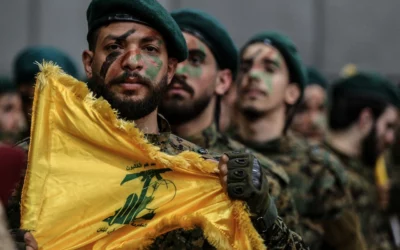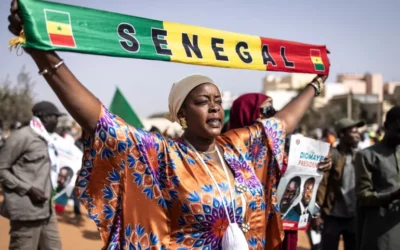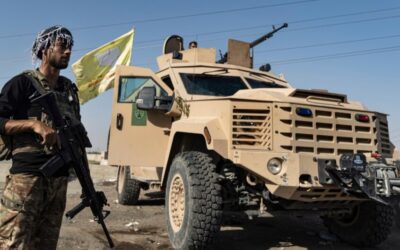Prague Center for Middle East Relations
The Prague Center for Middle East Relations (PCMR) was established in September 2019 as an internal research, education and advisory facility of CEVRO University.Recent Activities
Roundtable “Lebanon’s Fateful Hour: Prolonged Conflict, Ongoing Economic Crisis and Stalled Leadership”
On November 18, 2024, the Prague Centre for Middle East Relations (PCMR) of CEVRO hosted a closed roundtable discussion entitled “Lebanon’s Fateful Hour: Prolonged Conflict, Ongoing Economic Crisis and Stalled Leadership” with Sami Zoughaib from The Policy Initiative in Beirut.
Policy paper “Aftermath of the Senegalese presidential elections 2024 and the security situation in the country”
Richard Klauber, a research intern at the Prague Centre for Middle East Relations (PCMR) of CEVRO University, published a policy paper entitled “Aftermath of the Senegalese presidential elections 2024 and the security situation in the country”. The paper analyses the situation after the key presidential elections in Senegal, which brought many changes in the country.
Roundtable “North and East Syria (NES) on the Edge: Turkish Drones, Tribal Unrest, and the Fight for Stability”
On October 17, 2024, the Prague Center for Middle East Relations (PCMR) of CEVRO University hosted a closed roundtable discussion entitled “North and East Syria (NES) on the Edge: Turkish Drones, Tribal Unrest, and the Fight for Stability” with Mohammed Ibrahim, political expert on Syrian case.

Message of the PCMR Director
The Middle East and North Africa (MENA) are currently experiencing significant transformations, including persistent conflicts, sociodemographic changes in population structure, and growing challenges such as climate change and economic instability. These processes not only affect regional security and stability but also profoundly impact international politics, including the interests of Central Europe. Events like the Syrian conflict, developments in Iraq, the war in Gaza, the question of the Abraham Accords, and the increasing influence of Russia and China are altering the overall geopolitical landscape in the region.
Despite developments in the region directly impacting global energy and financial markets, migration, and security issues, including the persistent threat of terrorism, these topics do not receive sufficient attention in the academic and political spheres of the Czech Republic and Central Europe.
Mission
-
Our primary mission is to deepen the understanding of the rapidly evolving security, political, and social dynamics in the Middle East, particularly in light of events such as ongoing regional conflicts, normalization efforts, and shifting alliances. Through research on current and politically relevant topics, we strive to provide insights that are crucial for informed decision-making.
-
We also focus on formulating recommendations that address the challenges and opportunities arising from these changes, to support decision-making processes not only in the Czech Republic but throughout the Central European region. The growing influence of the Middle East on global energy markets, migration trends, and regional security directly impacts Central Europe, making it necessary to adapt our policies to these challenges.
-
Furthermore, we are committed to enriching the academic, political, and public discourse on the Middle East by exploring how developments in this region influence European domestic and foreign policy. This includes understanding the impact of Middle Eastern dynamics on European security, economy, and social cohesion.
Vision
-
-
Our goal is to fill the growing need for deeper analyses of the social, economic, and political processes in the Middle East within the Czech Republic and Central Europe, with a focus on the region’s turbulent dynamics.
-
-
-
We aim to become a leading research institution in Central Europe, focusing on publishing high-quality and politically relevant outputs on developments in the Middle East, particularly concerning recent geopolitical changes, energy transitions, and security challenges.
-
-
-
We are determined to foster deeper academic, public, and media discussions about the Middle East, especially at a time when changes in the region increasingly influence European security and energy policy. In this way, we seek to identify and proactively address emerging threats and opportunities brought about by these rapid changes.
-
Partners, Donors, Sponsors, and Supporters





















